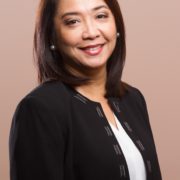On a weekend trip to Las Vegas, Rosa, a United States citizen, ran into some old friends, and was introduced to a friend of a friend, Domingo, a tourist who just arrived on a B-2 visa. Rosa and Domingo quickly fell for each other and were convinced they were madly in love. After a week of getting to know each other, they got married. They then filed for Domingo’s application to adjust status based on his marriage to a US citizen. Five months ago, they attended their adjustment interview together. Last week, they received a letter stating that they have been scheduled for a second interview. The Interview Notice indicates that this second interview might be recorded (video-taped). Rosa and Domingo have never consulted with an attorney before, and are worried. They would like to know what to expect at this second interview.
The immigration laws of the United States contain very strict provisions regarding fraudulent marriages. If an individual is found to have entered into a fraudulent marriage, all subsequent visa petitions on behalf of that person must be denied. Pursuant to INA §204(c)(1), no visa petition may be approved if the “alien has previously been accorded, or has sought to be accorded, an immediate relative or preference status as the spouse of a citizen of the United States or the spouse of an alien lawfully admitted for permanent residence, by reason of a marriage determined by the Attorney General to have been entered into for the purpose of evading the immigration laws.” In notifying applicants of a denial based on INA §204, the United States Citizenship and Immigration Services (USCIS) often simply refers to the prior finding of marriage fraud as the basis for the denial without further explanation.
Immigration officers look to certain behaviors and or characteristics in an applicant’s marriage that, if compared to a “normal” marriage, would set it apart and therefore draw suspicion. Some of the grounds for suspicion that an immigration might consider include, but are not limited to: an unusual or large age difference between Petitioner and Beneficiary; Multiple previous marriages to foreign nationals by the Petitioner; negative financial status of the Petitioner; and a relatively short period of time between the foreign national’s entry into the United States and the marriage to the US citizen.
Applied to Rosa and Domingo’s facts, we see that Domingo had just arrived in the United States on a B-2 (tourist) visa and then not too long after, married a United States citizen, Rosa. This detail has certainly caught the immigration officer’s attention during their first interview, among other details in Rosa and Domingo’s marriage that may have raised red flags so that a second “anti-fraud” interview had to be scheduled for the two.
A second “anti-fraud” or Stokes interview is scheduled if at the conclusion of the first interview, the parties are unsuccessful in convincing the immigration officer that the marriage is real. During the interview, the husband will be separated from the wife and each party will be questioned separately. The immigration officer will test the knowledge of the Petitioner about the Beneficiary and vice versa, and whether they are truly living together as a married couple. For example, the officer expects that a truly married couple will know his or her home and environment well enough to answer questions like, “What type of stove do you have at home?” or “What color is your microwave?” or “Where do you keep extra rolls of bathroom tissues?” The answers given by the couple will be compared. Any answer that seems doubtful could lead the immigration officer to form a negative opinion about the parties, and the marriage. Thus, both parties should be sharp, coherent, consistent, and credible with their answers because any inconsistencies will result in the denial of the application.
Married individuals seeking to adjust their status to that of a lawful permanent resident based on his or her marriage to a United States citizen should consult with a licensed and experienced immigration attorney to help them sufficiently prepare for an adjustment interview to preempt a second anti-fraud interview, and more importantly prevent a finding of marriage fraud at all costs.
***
Atty. Aurora Vega is a partner in The Law Firm of Chua Tinsay and Vega (CTV) – a full service law firm with offices in San Francisco, Sacramento, San Diego and Manila. The information presented in this article is for general information only and is not, nor intended to be, formal legal advice nor the formation of an attorney-client relationship. The CTV attorneys will be holding its regular free legal clinic at the Max’s Restaurant in Vallejo, California on September 27, 2010. Call or e-mail CTV for an in-person or phone consultation to discuss your particular situation and/or how their services may be retained at (415) 495-8088; (619) 955-6277; auvega@ctvattys.com.







